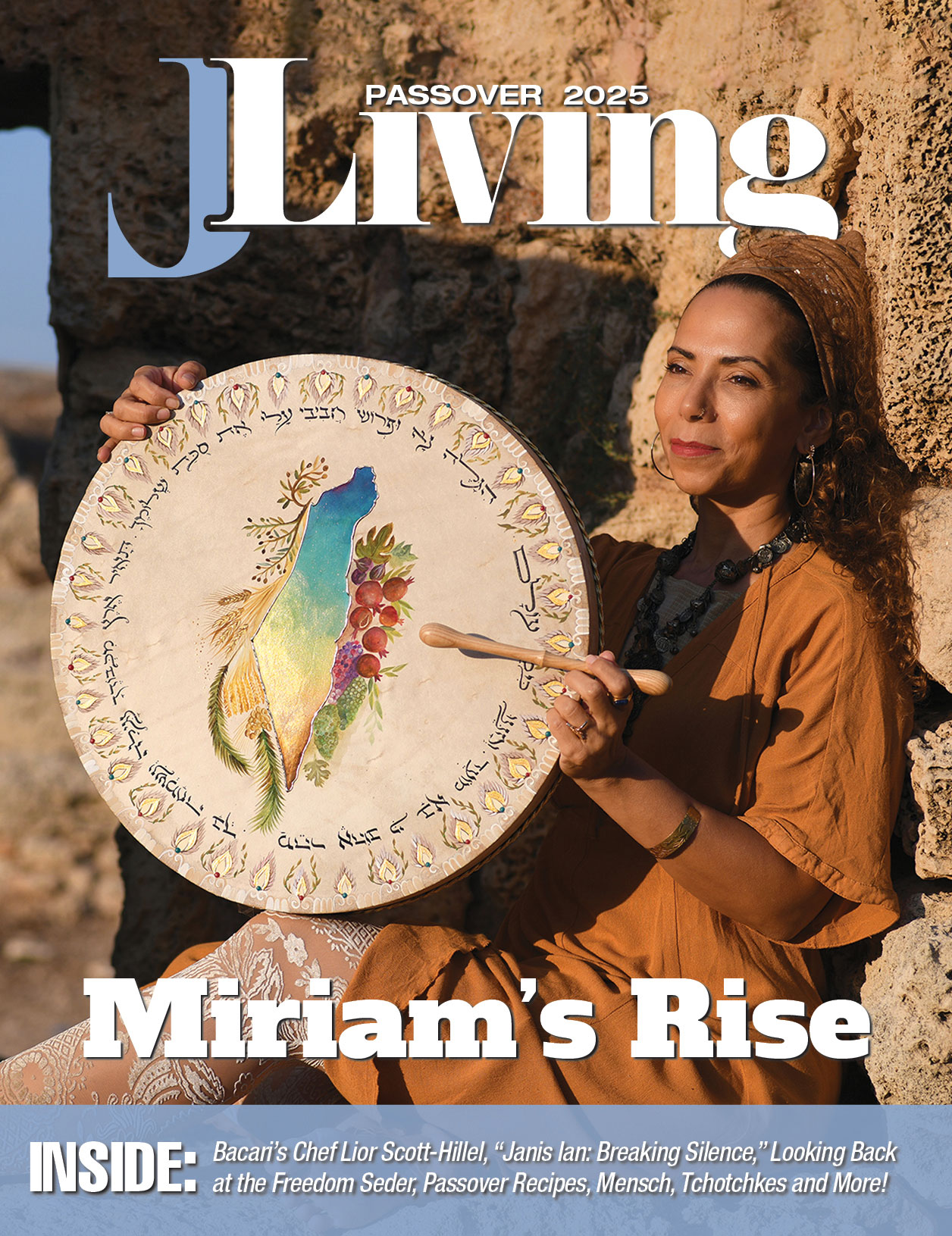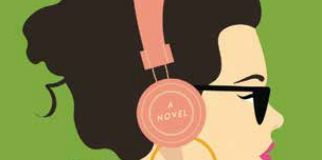Rite Of Passage – You Are So Not Invited to My Bat Mitzvah

When the pitch came from a book editor with Alloy Entertainment in 2003, author Amanda Stern was initially reluctant. “I was onstage doing this event and she happened to be in the audience,” Stern recalled during a telephone interview from her home in Fort Greene, Brooklyn, which she shares with her dog, Busy. “She came up to me afterward and said, ‘You’re really funny. Do you have any interest in writing for kids? We want to do a bat mitzvah book.’”
Stern, who had grown up in a secular Jewish home in Manhattan, had never even had a bat mitzvah. Her first novel, “The Long Haul” (2003) – about a couple, one an alcoholic, the other codependent, in a doomed, six-year relationship — had come out that same month to good reviews.
“I had mapped out my career as a writer of serious adult literary fiction, so I said I was not interested,” Stern recalled of her conversation with the editor. But the woman was persistent. “She told me that I could make up my own story and that I didn’t have to use my actual name on the book cover,” Stern said. “So I said, ‘Let me work on a sample chapter,’ and I did and it was really fun. It was such a good counterweight to the stuff I was writing for grown-ups, which was much darker and emotionally based.”
Two years later, the result was Stern’s beloved, popular, and well-received young adult novel, “You Are So Not Invited to My Bat Mitzvah!” (Poppy/Little, Brown Books for Young Readers, $7.99) written under the pseudonym Fiona Rosenbloom. The book was rereleased in paperback on July 25 in ad – vance of a Netflix movie of the same name, inspired by the tome, to premiere on Au – gust 25. The film stars and is produced by Adam Sandler, who appears along – side his real-life wife, Jackie, and their two daughters, Sadie, 17, and Sunny, 14, who observed her own bat mitzvah with a star-studded, candy-themed celebration last year.

In the film, Sunny Sandler plays Stacy Friedman, a Reform Jewish 13-yearold who is cramming for her bat mitzvah while battling cliquey teenage politics and a best friend who has hooked up with the boy she likes. This perceived betrayal prompts Stacy to utter the words that will wreak havoc on her social life: “You are so not invited to my bat mitzvah!”
During the JLiving interview, Stern chose not to discuss the film in solidarity with screenwriters striking with the Writers Guild of America. (She is not a member of the WGA.) The rerelease’s cover, however, mentions that it has been adapted into a Netflix movie.
In an interview via email, one of the producers of the movie, Elysa Koplovitz Dutton, said that “We had always talked about how great it would be to explore [a] film version [of the book]. The idea began taking shape when Netflix started making more movies for younger audiences. After that, it was a question of casting and when we realized that Sunny Sandler was turning 13, the stars aligned to begin putting the movie together. We loved the celebration of Jewish culture and [the] specific milestone of bat mitzvah tradition set against the backdrop of a time – less coming-of-age friendship story…The movie is a celebration of Jewish culture and also extremely universal in its appeal with themes of friendship/romance/com – ing-of-age.”
Elysa Koplovitz Dutton said that Stern was “on board from the get-go.” She added that a rabbi was on hand to help the actors and “provide script guidance and make sure we got it right.”
Stern relates to the best friends’ breakup in the book, which also takes place in the film. At 13, she and her three closest gal pals “got into a really big fight over a Jewish holiday,” she recalled. She doesn’t remember which one. But Stern and the other Jewish girl in their quartet were “enraged” that they had gone to school on the holiday, while the non-Jewish friends had ditched school and had “taken a holiday that was not theirs…We just went wild with madness, and it pitted us against each other. It ended up with half of my class not speaking to me. For the book, I did take aspects of that feeling of being excluded, not chosen, invisible. But, like, a few months later, we all made up.”
When Stern’s much-younger sister became the only one in the family to have a bat mitzvah, the author, by then an adult, “was a little bit jealous,” she said. “It’s such a rite of passage, and I hadn’t really had any rite of passage.”

During research for her novel – which included flying to Arizona to peruse a friend’s bat mitzvah preparation book and attending a handful of bar and bat mitzvahs – Stern became aware that some 13-year-olds hadn’t so much a sense of the event’s gravitas. “It was really about the extravagance and the party, consumerism, and product,” she said. “That was a long time ago, but today kids even make entrance videos and things like trailers for their bar and bat mitzvahs.”
The fictional Stacy also “starts out being more interested in the more superficial aspects of the event, in terms of the dress she’s going to wear, the party she’s going to have and the boy she wants to kiss,” Stern said. “But over the course of the story and her spending time with her rabbi, she begins to identify with Judaism in a deeper way.”
During the interview, Stern – who described her age as “Gen X” — was open and approachable, hilarious, and occasionally irreverent; in a photo, she appears wearing a stud in her nose and tousled, shoulder-length hair. The conversation turned serious as she described growing up shuttling between her mother’s bohemian home in Greenwich Village and her father’s more upscale digs farther uptown. All the while, she suffered from an undiagnosed severe panic disorder, plus the resulting anxiety, agoraphobia, and depression, which she chronicles in her acclaimed 2018 memoir, “Little Panic: Dispatches from an Anxious Life.”
Stern recalled. Her angst arose from the acute separation anxiety she felt whenever she had to leave her mother. “I was convinced that if I was separated from her that she would die, or if I wasn’t watching she would disappear or forget she had kids or move to Europe and not send her forwarding address.”
Stern surmised that one reason for her anguish was that she had been “born into a marriage that was not happy. When my parents split up when I was very young, something must’ve imprinted on me – like someone can be there one day and then they’re not.”
Paralyzed by her panic, Stern performed so poorly at school that she was deemed learning disabled and subjected to a battery of traumatic tests over nine years.
She attempted to self-medicate with unhealthy relationships and for a time, drugs such as cocaine. But it wasn’t until she was 25 and contemplating suicide while holed up in her apartment for three weeks that she finally visited the psychologist who diagnosed her panic disorder. “I almost levitated with a full-body relief,” Stern recalled of finally learning what had been causing her crippling symptoms. Taking antidepressants helped, as was learning not to avoid her fears but to go toward them and feel them. She noted that she was still alive, having already survived what she thought she couldn’t. And writing solidified her growing sense of stability and confidence.
Stern is known for founding the legendary Happy Ending Music and Reading Series (2003-2018), which required creative artists to take risks onstage. She also founded a mental health newsletter, “How to Live,” in which she signs every entry “Anxiously Yours.” She wrote a sequel to her bat mitzvah book, titled “We’re So Crashing Your Bar Mitzvah,” among a total of 13 published books, 10 of them for children. And she’s written prolifically – both fiction and non-fiction — for publications such as The New York Times and The New York Times Magazine.
Stern said she got through the pandemic by joining a Jewish meditation group. She also hopes to celebrate her own Hebrew naming ceremony at some point in the future.
On July 19, the author left therapy after 23 years because “I was ready to face life alone,” she said. Her psychologist agreed. “I’m not cured of the things inside of me that cause me to struggle, but I’m well-equipped to deal with them,” Stern said. And she’s pleased about the rerelease of her bat mitzvah book. “I’m happy that it gets another spin in the world,” she said. “I don’t think there’s a ton of stuff out there for Jewish teens, and I’m happy to contribute to that.”



























